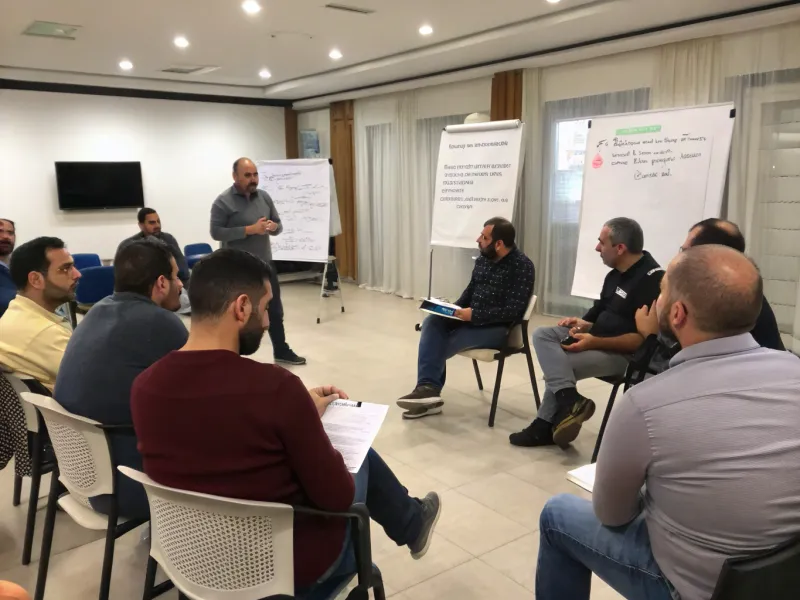What is Toxic Masculinity: 30 Eye-Opening Facts You Need to Know
Let’s get something straight right away: masculinity isn’t the problem. The toxic version of it is. Toxic masculinity isn’t “just how men are.” It’s how society teaches boys to be men. But guess what? We can teach something better. Something kinder. Something stronger.
Real strength doesn’t come from shutting down—it comes from showing up, being honest, being human. Let’s raise better men. Let’s be better men. Let’s start the unlearning—one conversation at a time. Toxic masculinity is that pressure-filled, narrow definition of what it means to “be a man.”
It tells men they can’t cry, can’t ask for help, can’t be soft, or show vulnerability. It teaches boys that dominance is strength, that power matters more than empathy, and that anything “feminine” is weak.
The result? A culture where emotions are buried, relationships break down, and everyone—men included—gets hurt. Here are 30 facts about toxic masculinity you need to know:
1. Toxic Masculinity is a Social Construct

Toxic masculinity isn’t a personality flaw; it’s a learned behavior. Society passes down these ideas about what men should or shouldn’t do, and it’s ingrained in our culture. From the media to the way parents raise their children, these ideals are subtly taught. Men are expected to be tough, emotionless, and dominant, but these expectations don’t define a man’s true nature.
By examining where these beliefs come from, we can begin to dismantle them. It’s time to question these norms and encourage a broader definition of masculinity, one that allows men the freedom to express themselves without judgment or fear of losing their “manliness.” Let’s redefine strength.
2. Emotional Suppression in Disguise

The phrase “man up” is often thrown around as a badge of honor, but it reinforces emotional suppression. Men are discouraged from showing vulnerability because society equates it with weakness. But let’s be honest, expressing emotions is inherently human. When men are taught to hide their feelings, it can lead to emotional instability and even mental health issues.
Breaking free from this mold requires courage and a supportive environment. Encourage men in your life to speak up and share their feelings. Celebrating emotional honesty can pave the way for healthier relationships and a more balanced life. After all, real courage is found in self-expression, not silence.
3. Aggression as a False Strength

Toxic masculinity often equates aggression with strength, teaching boys that dominance is the way to earn respect. This skewed perception sidelines empathy, labeling it as weak. But true strength lies in understanding and compassion, not in overpowering others. When aggression is valued over kindness, it can lead to strained relationships and a lack of emotional fulfillment.
By promoting empathy and emotional intelligence, we can help boys develop into men who are strong in character, not just in presence. Start by recognizing and praising acts of kindness and understanding in young men. Strength through empathy can change how we define masculinity.
4. Crying is Human, Not Weak

Boys are often told that crying is a sign of weakness, something to be hidden away. But crying is a natural emotional release, a way to process feelings. Suppressing tears and emotions doesn’t make someone stronger; it can lead to emotional turmoil. Teaching boys that it’s okay to cry opens up a path to emotional health and resilience.
Encourage young men to embrace their emotions as a strength rather than a flaw. By normalizing emotional expression, we allow men to lead healthier, more connected lives, breaking away from toxic norms that dictate how men “should” behave. Let tears be a release, not a burden.
5. Punishment for Vulnerability

Admitting pain or fear is often mislabeled as weakness in a toxic masculinity framework. But let’s flip this narrative—vulnerability is a form of bravery. It takes courage to be open about one’s struggles and to seek help when needed. When vulnerability is punished, men learn to hide their true selves, leading to loneliness and disconnection.
Promoting a culture where vulnerability is seen as a strength can help men build authentic relationships. Encourage conversations that allow men to be open without fear of judgment. Vulnerability nurtures connections, offering authentic strength and a deeper understanding of oneself and others.
6. Value Control Over Connection

Toxic masculinity often teaches men that control is more valuable than emotional connection. This focus on power and dominance can isolate men, preventing them from forming meaningful relationships. But true fulfillment comes from connection, not control. Teaching men to value emotional closeness can lead to richer, more satisfying lives.
Encourage the men around you to engage more deeply with their feelings and relationships. Building a culture where emotional intelligence is praised can redefine what it means to be strong. Connection over control can lead to healthier relationships and a more compassionate society. Let’s foster environments where emotional bonds are celebrated.
7. Emotional Isolation

Growing up with toxic masculinity often results in emotional isolation. Men are taught to hide their feelings, leading to a struggle in forming deep, healthy relationships. This emotional barrier not only affects personal relationships but also hinders self-awareness and emotional growth. Encouraging men to break this cycle can lead to healthier emotional expression and stronger connections.
Open dialogue about feelings should be normalized, allowing for vulnerability without stigma. By addressing emotional isolation, we can promote a culture of connection and understanding. Let’s encourage men to explore their emotions and develop deeper, more fulfilling relationships with themselves and others.
8. Unhealthy Relationships

Toxic masculinity fuels unhealthy relationships by rejecting vulnerability and prompting emotional suppression. When communication is stifled and trust is undermined, relationships suffer. Men often feel pressured to conform to these damaging norms, which can lead to misunderstandings and conflicts. Encouraging open communication and emotional honesty can heal these rifts and foster stronger partnerships.
By challenging the toxic ideals that prevent vulnerability, we can support healthier, more balanced relationships. Encourage both partners to express their needs and emotions openly. In doing so, we create a supportive environment where understanding thrives, and relationships can grow beyond the constraints of toxic masculinity.
9. Contribution to Gender-Based Violence

Toxic masculinity is a contributor to gender-based violence, stemming from ideals of power, entitlement, and dominance. When men are taught that aggression equates to strength, it creates an environment where abuse can flourish. Challenging these harmful norms is crucial in preventing violence. Education and awareness can dismantle the beliefs that contribute to such behavior.
Encourage discussions that address the root causes of violence and promote empathy and respect. By fostering environments where equality and understanding are prioritized, we can reduce instances of gender-based violence and create safer spaces for everyone. Let’s teach respect as the foundation for all interactions.
10. Discouragement from Seeking Help

Toxic masculinity discourages men from seeking help, particularly for mental health issues. Phrases like “real men don’t need therapy” perpetuate the dangerous idea that seeking help is a sign of weakness. This stigma makes it difficult for men to reach out when they need support, leading to untreated mental health issues and a lack of emotional well-being.
Encouraging men to seek help and normalizing therapy can transform lives. Support groups and open conversations can reduce the stigma surrounding mental health. Let’s create an environment where asking for help is seen as a strength, not a weakness, fostering healthier, happier lives.
11. Higher Rates of Self-Harm in Men

Men often suffer in silence due to the toxic masculinity that glorifies emotional suppression. This silence can lead to increased rates of self-harm among men, as they feel trapped and unable to express their struggles. Addressing this issue requires breaking the stigma around mental health and encouraging open conversations.
Creating safe spaces where men can discuss their feelings without judgment is vital. Community support and mental health resources can help reduce these tragic statistics. By promoting emotional openness and compassion, we can save lives and offer hope. Let’s make it known that seeking help is a courageous step, not a defeat.
12. Gender Norms

Toxic masculinity enforces rigid norms about gender, insisting that “real men” must be dominant, and emotionless. Those who don’t fit this mold often face mockery and shame. This narrow perception stifles individuality and breeds intolerance. By challenging these restrictive norms, we can create an inclusive society where everyone is free to express themselves authentically.
Acceptance and understanding should be the standard. Encourage conversations about gender and identity, celebrating diversity and breaking down barriers. Together, we can create a world where all expressions of masculinity are valued and respected, fostering an environment of acceptance and love.
13. Harm to Non-Stereotypical Men

Men who don’t fit the stereotypical mold of masculinity often face ridicule and discrimination. Gentle, creative, and emotional men are unfairly judged due to toxic masculinity’s narrow definitions. This can lead to feelings of inadequacy and isolation, preventing these individuals from fully embracing their true selves. By challenging these stereotypes, we can create spaces where all expressions of masculinity are celebrated.
Encourage men to pursue their passions and express their emotions freely. By fostering an environment that respects diversity, we break down harmful norms and allow for more authentic, fulfilling lives. Let’s appreciate the beauty in every variation of masculinity.
14. Glorification of Risk-Taking and Recklessness

Toxic masculinity often glorifies risk-taking and recklessness, promoting a dangerous mentality of “no fear” and “go hard or go home.” While taking risks can lead to growth, glorifying recklessness disregards safety and responsibility. This mindset can result in harm, both physically and emotionally.
Teach young men that courage isn’t about recklessness but about making informed choices. By redefining what it means to be brave, we can cultivate an environment where safety and wisdom are valued alongside adventure and exploration. Let’s balance thrill with care.
15. Discouragement of Fatherly Affection

Toxic masculinity often discourages fatherly affection, labeling it as “soft” or “unmanly.” Many men were raised without hearing “I love you” from their dads, leading to emotional disconnect. Encouraging fatherly affection is vital for emotional bonding and healthy relationships. Fathers showing love and vulnerability teach their children that expressing emotions is natural and important.
By breaking down these barriers, we can foster a new generation of men who are comfortable with emotional expressions. Let’s promote a culture where fatherly love is celebrated, not stigmatized, nurturing stronger family bonds and a more emotionally intelligent society. Show love without reservation.
16. Shallow Male Friendships

Toxic masculinity often leads to shallow friendships among men, where emotional depth is avoided for fear of being labeled “weak” or “sus.” This prevents men from forming genuine connections and experiencing the full spectrum of friendship. Open dialogue and emotional honesty in male friendships can lead to deeper, more fulfilling relationships.
Promote environments where men feel safe to express vulnerability without fear of judgment. By challenging the norms that limit male friendships to superficiality, we can create a culture where meaningful connections are celebrated. Let’s encourage men to build strong, emotionally rich friendships that offer true companionship.
17. Pressure to be the Provider

Toxic masculinity imposes the pressure on men to be “the provider,” tying their worth to financial status. This expectation can cause immense stress and impact mental health, as men feel their identity hinges on providing. By redefining success and challenging this narrow view, we can alleviate this burden. Encourage a balanced approach to family roles, where both partners share responsibilities.
Worth isn’t tied to earnings but to the quality of relationships and personal fulfillment. By shifting these perceptions, we foster healthier dynamics in families and allow men the freedom to define their own success. Let’s share the load.
18. Discouragement from Co-Parenting

Toxic masculinity often discourages men from co-parenting equally, perpetuating the myth that childcare is “women’s work.” This outdated belief limits family dynamics and prevents men from forming strong bonds with their children. Promoting shared parenting responsibilities allows for more balanced family relationships and personal fulfillment.
Encourage men to actively participate in parenting, challenging norms that restrict their involvement. Co-parenting cultivates an environment where all parental roles are valued and respected. This not only enhances family unity but also sets a positive example for future generations.
19. Women as Trophies, Not Partners

Toxic masculinity often teaches men to view women as trophies to be won, rather than partners to be respected. This objectification undermines genuine relationships and fosters inequality. By challenging this mindset, we can promote partnerships built on mutual respect and understanding. Encourage men to view women as equals, fostering connections based on shared values and goals.
By addressing these harmful norms, we can create healthier, more equitable relationships. Promote conversations about respect and equality, emphasizing the importance of seeing each other as partners rather than possessions.
20. Conquest Over Connection

The narrative of conquest over connection is prevalent in toxic masculinity, especially in dating and intimate relationships. Men are often praised for the number of conquests rather than the depth of their connections. This perspective reduces relationships to mere achievements rather than meaningful interactions.
Teach young men that true success in relationships comes from understanding and mutual respect, not from tallying conquests. By shifting the focus to connection, we create a culture of empathy and partnership. Let’s celebrate the beauty of meaningful relationships.
21. Empathy as a Feminine Trait

Toxic masculinity often labels empathy as a feminine trait, prompting men to avoid it. This view undermines the importance of empathy in building strong, compassionate relationships. Encouraging men to embrace empathy can lead to more meaningful connections and a more understanding society.
Promote empathy as a trait of strength and maturity, rather than a weakness. Teach men to value emotional intelligence and the ability to connect deeply with others. By challenging the stereotype that empathy is “feminine,” we allow men to experience the full range of human emotions.
22. Normalization of Male Jealousy and Possessiveness

Toxic masculinity normalizes jealousy and possessiveness as signs of love, when in reality, they are forms of control. This mindset can damage relationships, leading to a lack of trust and respect. Encouraging open communication and setting healthy boundaries can combat these toxic patterns. Teach young men that true love is based on trust and mutual respect, not control.
Challenging these norms can foster relationships where both partners feel valued and respected. Promote a culture where emotional security is prioritized and jealousy is addressed openly. Let’s redefine love as a partnership of equals, free from control and possessiveness.
23. Emotional Immaturity as a Joke

Toxic masculinity often turns emotional immaturity into a joke, trivializing the importance of emotional growth. Sitcoms frequently portray fathers as incapable, reinforcing stereotypes that hinder emotional development. By addressing these portrayals, we can emphasize the importance of emotional maturity in creating healthy relationships.
Encourage media that showcases positive male role models who embrace emotional growth. Teach men the value of learning from mistakes rather than laughing them off. By promoting emotional maturity, we create a culture that values growth and understanding. Break the cycle of trivialization and encourage men to strive for emotional depth and intelligence.
24. Stigmatization of Self-Care

Toxic masculinity often stigmatizes self-care as “unmanly,” discouraging men from engaging in activities that promote well-being. This mindset prevents men from taking care of their physical and mental health. By challenging this stigma, we can encourage men to prioritize self-care, leading to healthier, more balanced lives.
Promote the idea that self-care is a fundamental part of being healthy, regardless of gender. Encourage men to explore activities that bring joy and relaxation, whether it’s spa visits, meditation, or hobbies. Let’s redefine self-care as a strength, allowing men to thrive in every aspect of their lives. Embrace wellness without shame.
25. Discouragement from Developing Emotional Intelligence

Toxic masculinity discourages men from developing emotional intelligence, equating emotional awareness with weakness. This hinders personal growth and limits the ability to form deep connections. Encouraging men to embrace emotional intelligence can lead to more fulfilling relationships and a greater understanding of oneself and others.
Promote education and workshops on emotional awareness, emphasizing its importance in personal and professional life. By challenging the stereotype that emotional intelligence is “unmanly,” we allow men to grow and connect on deeper levels.
26. Damage to Physical Health

Toxic masculinity often damages men’s physical health by encouraging them to “tough it out” rather than seeking medical help. This mentality can lead to untreated illnesses and a lack of preventive care. By challenging this harmful norm, we can promote a culture where health is prioritized.
Teaching men that seeking medical advice is a sign of responsibility, not weakness, can lead to longer, healthier lives. Let’s redefine what it means to be strong by valuing health and well-being. Promote a proactive approach to health, encouraging men to take charge of their wellness.
27. Intergenerational Cycles of Pain

Toxic masculinity often causes intergenerational cycles of pain, as unhealed men raise boys who repeat the same patterns. This cycle perpetuates harmful norms and prevents emotional growth. Breaking this cycle requires awareness and a commitment to change. Dialogues between generations are crucial, allowing older men to share their experiences and younger men to learn and grow.
Understanding and healing can prevent the continuation of toxic behaviors. Promote a culture of support and mentorship, where men feel empowered to evolve and embrace healthier expressions of masculinity. End the cycle and raise a generation of men who value healing and growth.
28. Performative Masculinity

Toxic masculinity often leads to performative masculinity, where men act out roles rather than embracing their true selves. This performance is driven by societal expectations, limiting authenticity and personal growth. Encouraging men to explore their identities and express themselves freely can lead to a more fulfilling life.
Promote spaces where men can shed the expectations of toxic masculinity and be their authentic selves. By challenging these roles, we empower men to live truthfully and embrace their individuality. Let’s create a culture where authenticity is celebrated, and men feel free to be their true selves without performance or pretense.
29. Harm to All Genders

Toxic masculinity harms both women and men, as it restricts emotional expression and promotes inequality. This creates an environment where no one truly benefits. Addressing these issues requires a collective effort to challenge and change harmful norms. Open dialogue and collaboration across all genders can promote understanding and equality.
By dismantling toxic masculinity, we create a society where everyone can thrive and express themselves freely. Promote inclusivity and respect, emphasizing the importance of lifting each other up. Let’s work together to build a world where toxic masculinity is a relic of the past, replaced by acceptance and compassion.
30. Unlearning Toxic Masculinity

Toxic masculinity can be unlearned with awareness and accountability. By recognizing its harmful impacts, we can make conscious efforts to change. Encourage men to reflect on their behaviors and engage in discussions that promote healthier expressions of masculinity. Support groups and educational resources can aid this process, providing tools for growth and understanding.
By embracing vulnerability and emotional intelligence, men can redefine what it means to be masculine in a positive way. Let’s foster a culture where change is celebrated, and men are encouraged to evolve beyond toxic norms. Together, we can create a new narrative of masculinity grounded in strength and empathy.







